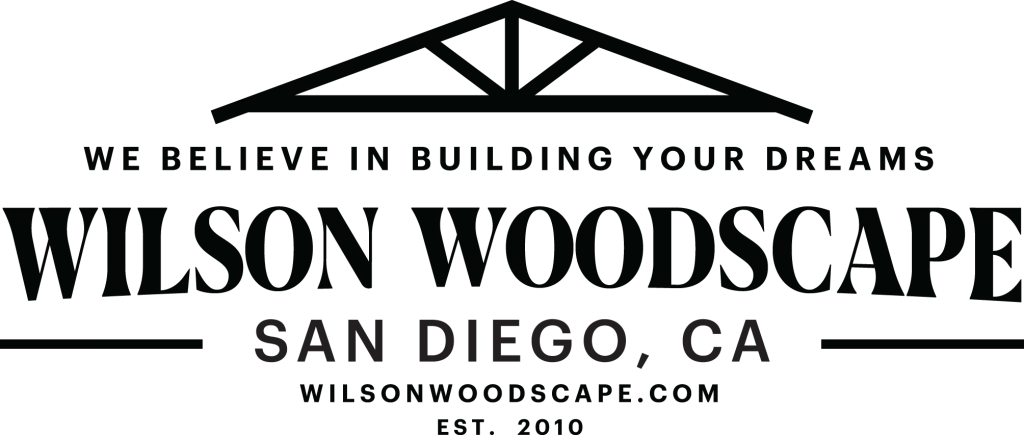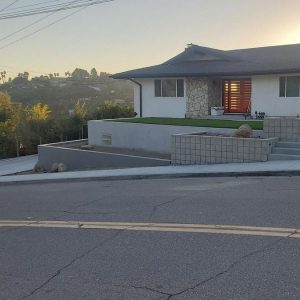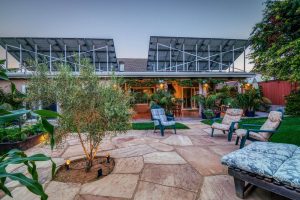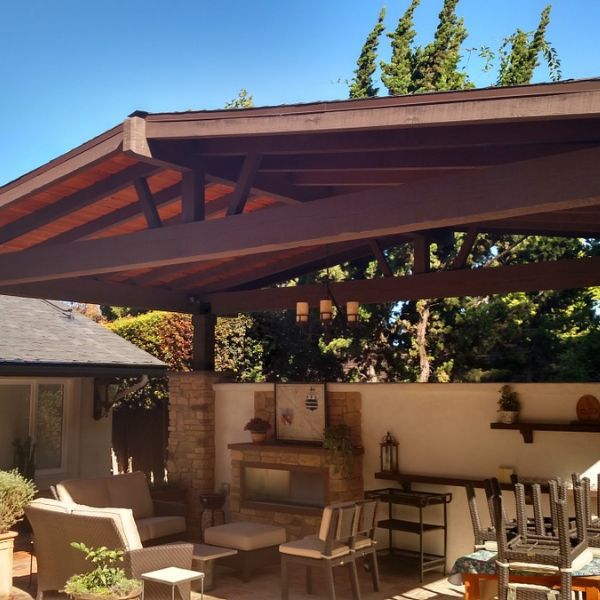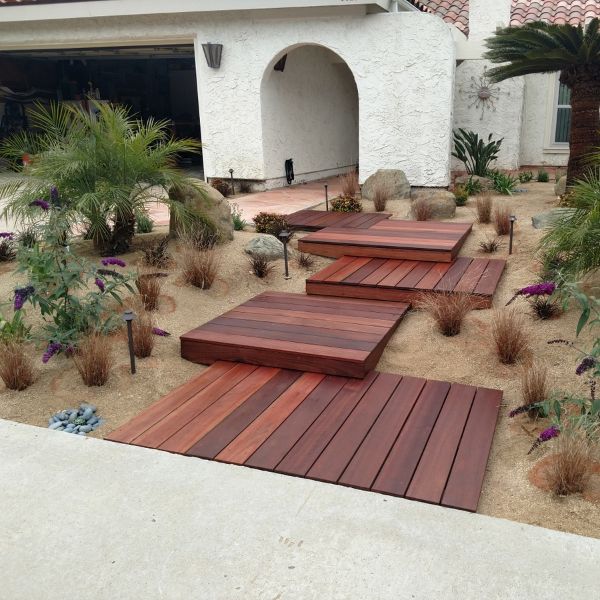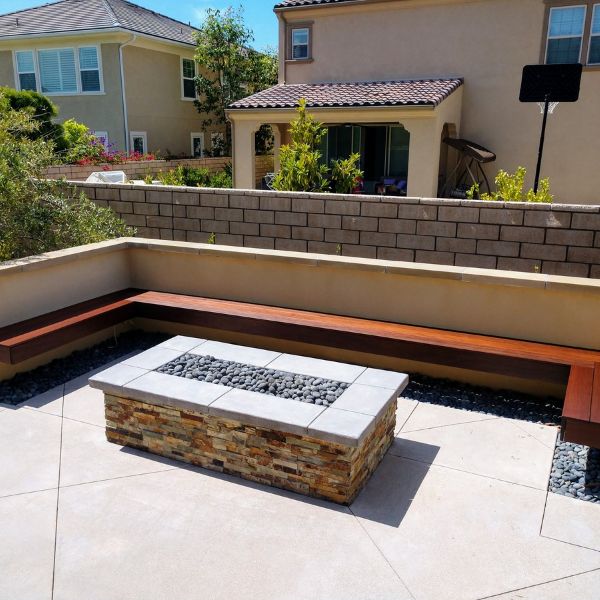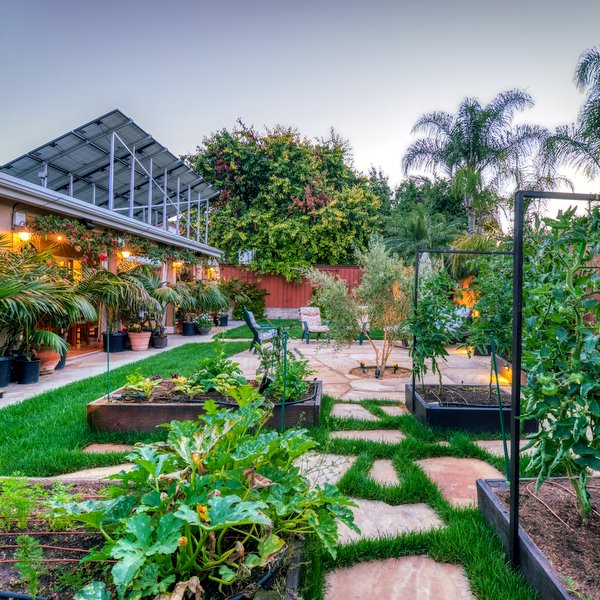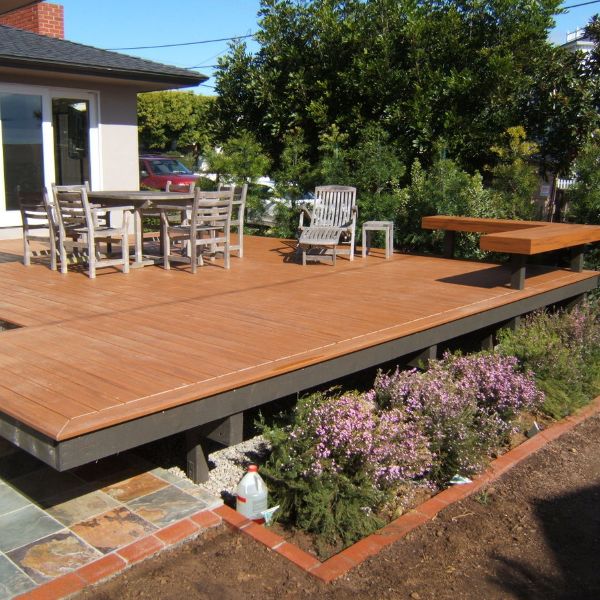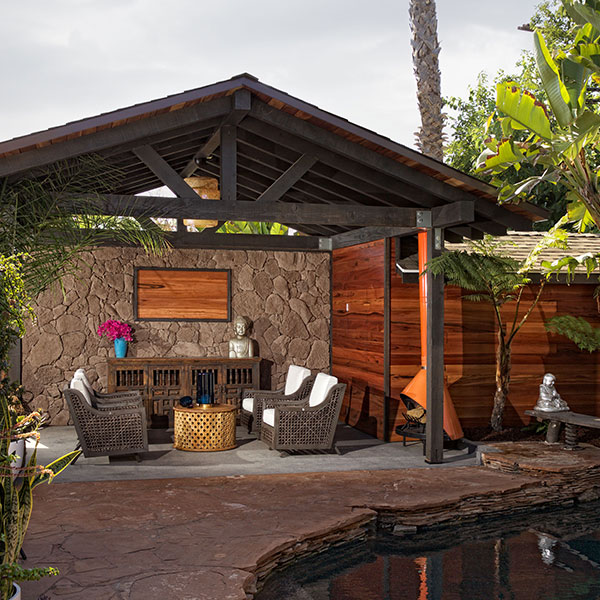Concrete Masonry San Diego: Expert Services for Custom Outdoor Living Spaces
Discover the enduring beauty and unmatched function that concrete masonry brings to San Diego homes. With over two decades of dedicated service to the San Diego community, Wilson Woodscape Landscape Construction has established a legacy of transforming outdoor spaces with unparalleled expertise and craftsmanship. Many properties struggle with fading surfaces, soil erosion, and outdated designs that detract from their appeal and usability. This guide explores how concrete masonry tackles durability, maintenance, and aesthetic challenges, covering key benefits for our local climate, Wilson Woodscape’s specialized services, project cost considerations, material choices suited for San Diego’s weather, quality control in our craftsmanship, popular project applications, and answers to your most pressing questions. Dive in to gain expert insights and learn how to transform your backyard into a high-value, low-maintenance sanctuary that enhances your home and provides lasting enjoyment.
What Are the Key Benefits of Concrete Masonry for San Diego Homes?
Concrete masonry offers robust solutions perfectly suited for Southern California’s coastal environment, blending structural integrity with design flexibility to ensure your outdoor living spaces stand the test of time. Its exceptional compressive strength and moisture resistance make it ideal for patios, retaining walls, and driveways that last for decades. Homeowners enjoy long-term savings through minimal upkeep and improved energy efficiency, all while significantly boosting curb appeal. This perfect balance of practicality and style makes concrete masonry a wise investment for any San Diego property.
How Does Concrete Masonry Enhance Durability and Longevity?
Concrete masonry excels in durability by resisting moisture, intense UV rays, and the freeze-thaw cycles that can affect coastal areas. Its dense composition prevents cracking and surface damage, while properly reinforced block and poured concrete structures maintain their strength under significant loads and seismic activity. For instance, a reinforced concrete block retaining wall can remain structurally sound for over 50 years with just routine visual checks. This remarkable longevity means fewer repairs and a stable, reliable investment in your home’s infrastructure, setting the stage for understanding its value.
In What Ways Does Concrete Masonry Increase Property Value?
Concrete masonry significantly enhances property value by improving both functionality and visual appeal—qualities highly sought after in San Diego’s outdoor-centric real estate market. Custom patios and decorative concrete elements can add up to a 15 percent premium to your resale value by creating desirable living areas and distinctive design statements. Durable driveways and walkways made with high-quality pavers signal low future maintenance costs, giving potential buyers added confidence. These improvements translate directly into higher appraised values and quicker sales, underscoring the economic advantages of superior masonry work.
Why Is Low Maintenance Important for San Diego Outdoor Spaces?
Low maintenance is crucial for San Diego’s outdoor lifestyle, where year-round enjoyment demands surfaces that can withstand sun, salt air, and occasional rain without constant attention. Concrete masonry’s sealed finishes easily shed dirt and resist stains, minimizing the need for frequent cleaning and sealant reapplication. Unlike wood decks that can warp or natural stone prone to efflorescence, masonry surfaces simply require a good washdown to maintain their appearance. This reliability saves you time and ensures your patios, walkways, and pool areas are always ready for enjoyment.
How Does Concrete Masonry Support Erosion Control and Slope Management?
Concrete masonry provides effective erosion control through structurally sound retaining walls and engineered slope stabilization solutions that integrate beautifully with your landscape design. Properly constructed tiered block walls include built-in drainage systems and geogrid reinforcement to manage water runoff and soil pressure. For properties on coastal hillsides, these solutions prevent soil loss during heavy rains and protect your landscaping. Solid masonry terracing also creates usable garden levels, paving the way for integrated outdoor amenities that enhance both safety and aesthetics.
Concrete Masonry San Diego: Durable Custom Outdoor Living Solutions
Wilson Woodscape offers a comprehensive range of concrete masonry services designed to transform San Diego yards into personalized outdoor living environments. Drawing on over 30 years of hands-on experience, our team brings a proven track record of success to every project. From precisely engineered patios to intricate slope-management retaining walls, every project showcases expert craftsmanship and a deep understanding of our local climate. Homeowners benefit from carefully selected materials, a wide array of color options, and design integrations that perfectly complement the region’s architectural styles.
What Are Custom Concrete Patios and Their Design Options?
Custom concrete patios utilize poured and stamped techniques to create unique layouts, textures, and color schemes tailored to your preferences. Homeowners can choose from classic broom finishes, exposed aggregate, or decorative stamping that masterfully replicates the look of tile, stone, or wood planks. Integrated features like built-in seating benches, raised planters, and pergola supports enhance functionality. These patios resist cracking, even in shifting soils, when properly reinforced, and provide seamless transitions between your indoor and outdoor living areas.
How Are Durable Retaining Walls Built for San Diego Properties?
Durable retaining walls are constructed using interlocking concrete blocks or cast-in-place reinforced concrete, precisely engineered to match your property’s slopes. The design incorporates essential drainage piping behind the wall, gravel backfill, and geogrid stabilization layers to effectively relieve hydrostatic pressure and prevent settling. Finishing options range from smooth architectural blocks to custom-textured veneers that harmonize with your existing masonry. These features guarantee structural stability and manage water flow, preparing your landscape for safe, terraced installations.
What Are the Features of Stamped and Decorative Concrete?
Stamped and decorative concrete combines artistic flair with industrial strength, offering versatile design possibilities for patios, driveways, and pool decks. Key features include specialized embossing mats that mimic natural stone patterns and joints, integral color pigments that resist fading from UV exposure, and high-performance sealers that block out moisture. Custom border designs and accent bands elegantly frame your spaces, while scored control joints prevent unsightly random cracking. This combination delivers a low-maintenance surface with enduring visual appeal.
How Does Paver Installation Enhance Driveways and Walkways?
Paver installation involves using interlocking concrete units in a variety of shapes, sizes, and colors to create robust driveways and walkways. Proper installation includes a compacted sand and gravel base, secure edge restraints, and polymeric sand for joint filling to prevent weed growth and shifting. Permeable pavers offer an added benefit of improved drainage by allowing water to infiltrate into the ground below. This approach enhances both the functionality and sustainability of your pathways and driveways.
What Outdoor Living Masonry Features Are Available?
Our outdoor living masonry features include fully equipped kitchens, inviting fire pits, cozy fireplaces, comfortable seating walls, and elegant decorative columns. Each element is constructed using reinforced concrete masonry units or cast-in-place sections designed to withstand heavy use and local seismic demands. Countertops made from polished concrete can seamlessly integrate sinks and grills, while fire features utilize heat-resistant blocks and firebrick linings. These installations create cohesive entertainment zones that elevate your lifestyle and your property’s value.
How Much Does Concrete Masonry Cost in San Diego?
The cost of concrete masonry projects is influenced by the quality of materials, the complexity of the design, and the overall scale of the project. Pricing typically starts with standard concrete block or poured slab rates and increases with decorative finishes, specialized reinforcement, and engineered drainage systems. Wilson Woodscape provides clear, detailed estimates that break down labor, materials, and optional features, ensuring you understand the value and long-term savings involved. Here’s a comparative look at the primary cost factors.
| Project Factor | Cost Influence | Typical Range |
|---|---|---|
| Base Slab or Block Cost | Material grade and thickness | $8 – $15 per square foot |
| Decorative Finishes | Stamping, coloring, sealing | $5 – $12 per square foot additional |
| Reinforcement & Drainage | Rebar, geogrid, drainage piping | $4 – $9 per linear foot |
| Labor & Installation | Site preparation and crew expertise | $20 – $35 per square foot total |
| Permits & Engineering | Local codes and structural plans | $1,000 – $5,000 per project |
What Factors Influence the Price of Concrete Masonry Projects?
The main cost drivers include the quality of the concrete mix, the intricacy of decorative finishes, the reinforcement needed for slope stability, and how easily the site can be accessed. Complex stamping patterns and integral coloring require more labor, while engineered drainage systems and permit fees add specialized costs. The project’s size and compliance with local building codes also play a role in the final quote. Understanding these elements helps you balance your desired aesthetics with your budget.
How Does Wilson Woodscape Provide Transparent Pricing and Estimates?
Wilson Woodscape delivers detailed proposals that clearly outline material costs, labor charges, and optional upgrades, showing how each selection impacts durability and appearance. Our consultations include on-site assessments, evaluations of soil and drainage conditions, and personalized design discussions to align the project scope with your goals. This transparent process builds trust and ensures there are no hidden fees, setting realistic expectations for project timelines and your investment’s return.
Are There Cost Benefits to Choosing Concrete Masonry Over Other Materials?
Concrete masonry offers significant cost advantages through long-term savings on maintenance, repairs, and replacements. Unlike wood decking, which may need refinishing or board replacement every few years, properly installed masonry resists decay, insect damage, and weathering. Its thermal mass properties can also contribute to energy efficiency for nearby structures. When you consider its lifespan, the initial investment in concrete masonry often results in a lower total cost of ownership compared to other hardscape materials.
How Does San Diego’s Climate Affect Concrete Masonry Design and Material Choices?
San Diego’s mild climate, characterized by moderate rainfall, intense sunlight, and coastal salt exposure, requires careful selection of materials and design features that resist corrosion, moisture fluctuations, and UV damage. Appropriate admixtures and sealers protect surfaces from discoloration, while thoughtful drainage planning addresses occasional heavy storms. Understanding these environmental factors guides the selection of pavers, block types, and finishes to ensure both optimal performance and aesthetic harmony.
What Materials Are Best Suited for San Diego’s Weather Conditions?
Concrete blocks with low absorption rates and stamped concrete mixes containing UV-stable pigments perform exceptionally well under coastal conditions. Permeable pavers help manage runoff, while polymer-modified mortars provide resistance to salt-laden air. Sealers designed for sunlight reflection help minimize surface heat buildup. These materials work together to create resilient surfaces that maintain their integrity and color consistency in our local environment.
Climate Adaptation in Modern Concrete Masonry Design
In this paper, we present preliminary results from structural and environmental laboratory characterization studies on modern concrete masonry assemblies, including uniaxial compression tests on masonry units, doublets, triplets and prisms, but also innovative moisture tests specifically conceived to monitor the volumetric variations of both units alone and masonry specimens under controlled temperature and relative humidity, therefore providing a more accurate overview of drying shrinkage.
Structural and environmental characterization of modern concrete masonry for climate change design adaptation, 2023
How Are Retaining Walls Designed for Erosion Control in Coastal Areas?
Retaining walls in coastal areas are designed with integrated drainage cores, weep holes, and gravel backfill to direct water away from the masonry surfaces. Geogrid reinforcement layers securely connect soil masses to the wall structure, preventing bulging and settlement. Capstones effectively seal the top surface against water infiltration, and sealants protect the exposed block faces. This comprehensive approach stabilizes slopes and preserves the wall’s appearance despite harsh environmental conditions.
What Sustainable and Energy-Efficient Masonry Options Exist?
Concrete made with recycled aggregates and fly-ash admixtures reduces embodied carbon while maintaining equivalent strength. The natural thermal mass properties of concrete help regulate temperature swings in adjacent living spaces, reducing cooling needs. Permeable paver systems aid in stormwater management and combat the urban heat island effect. These sustainable choices align with green building principles, contributing to healthier landscapes and a reduced environmental footprint.
Research Spotlight: Advancements in Sustainable Concrete Masonry
Modern concrete masonry is continually evolving, driven by extensive research into material science and environmental engineering. These advancements are crucial for developing resilient, long-lasting structures that meet contemporary demands for sustainability and performance, especially in diverse climates like San Diego’s. Understanding these innovations provides a deeper appreciation for the engineering behind durable outdoor living spaces.
Innovations in Material Science for Enhanced Durability and Eco-Friendliness
Recent studies focus on optimizing concrete mixes with supplementary cementitious materials (SCMs) like fly ash and slag, which not only reduce the carbon footprint but also enhance long-term strength and resistance to chemical attack. Furthermore, the development of self-healing concrete, incorporating bacteria or microcapsules that release healing agents upon cracking, promises to extend the lifespan of masonry structures significantly. These innovations are particularly beneficial for coastal environments where structures are exposed to corrosive elements.
Self-Healing Concrete: A Review of Recent Developments
This review provides an overview of the recent developments in self-healing concrete, focusing on various healing mechanisms such as bacterial healing, microcapsule-based healing, and vascular network healing. The paper discusses the effectiveness of these methods in restoring mechanical properties and reducing permeability, highlighting their potential for increasing the durability and sustainability of concrete structures.
Wang, J., Van Tittelboom, K., De Belie, N., & Verstraete, W. (2014). Self-healing concrete: A review of recent developments. Construction and Building Materials, 68, 1-10.
How Does Wilson Woodscape Ensure Quality and Craftsmanship in Concrete Masonry?
Wilson Woodscape’s projects are a testament to our rigorous processes and deep local expertise, guaranteeing lasting performance and faithful execution of custom designs. Our extensive experience, honed over decades in the San Diego market, allows us to anticipate challenges and deliver solutions that stand the test of time. From the initial consultation to the final walkthrough, every step involves meticulous technical precision and close collaboration with our clients. Our team’s specialized training, advanced equipment, and unwavering commitment to industry best practices underscore our dedication to delivering superior results for San Diego homeowners.
What Is the Consultation and Design Process for Custom Projects?
Our process begins with an on-site consultation to thoroughly assess your property’s topography, soil conditions, and your specific objectives. Detailed design proposals include precise scale drawings, immersive 3D renderings, and tangible material samples. Engineering reviews ensure structural integrity, while various budget options clarify cost-benefit trade-offs. Consistent communication and client approvals at key milestones guide you through every decision, building confidence in the finalized plan.
How Are Projects Installed and Completed with Local Expertise?
Our installation teams employ industry-leading site preparation techniques—including grading, compaction, and drainage excavation—before erecting formwork or laying block courses. Reinforcement placement and concrete pours adhere to exact specifications, while our finishing crews apply stamps, colors, and sealers using climate-appropriate timing protocols. Final inspections meticulously verify alignment, joint integrity, and surface uniformity. This methodical approach ensures each installation is built to withstand San Diego’s unique environmental stresses.
What Do San Diego Homeowners Say About Wilson Woodscape’s Work?
San Diego homeowners consistently commend our durable finishes, flawless installations, and responsive service from the initial inquiry through project completion. Testimonials frequently highlight the transformative impact of new patios, retaining walls, and outdoor kitchens on family enjoyment and overall property appeal. The trust placed in Wilson Woodscape’s craftsmanship is built on transparent communication, strict adherence to timelines, and dedicated post-installation support that ensures lasting satisfaction.
What Are the Most Popular Concrete Masonry Project Types in San Diego?
Concrete patios, decorative stamped finishes, retaining walls, and paver driveways are the most frequently requested concrete masonry applications among San Diego homeowners. Each project type addresses specific functional needs—creating inviting outdoor living spaces, adding architectural detail, managing slopes, and enhancing entryways—while contributing to cohesive landscape designs that reflect coastal aesthetics and modern lifestyles.
Why Choose Concrete Patios for Outdoor Living Spaces?
Concrete patios provide expansive, level surfaces perfect for creating dedicated areas for seating, dining, and entertaining. Their extensive customization options—including textured finishes, inlaid pavers, and architectural borders—significantly enhance visual appeal. When properly sealed, these patios resist stains and temperature fluctuations. Concrete patios also serve as ideal foundations for integrated hardscape features like fire pits and kitchen islands, enabling multifunctional outdoor rooms that greatly enhance home enjoyment.
How Do Retaining Walls Improve Landscape Functionality and Aesthetics?
Retaining walls effectively transform uneven terrain into functional, usable terraces, preventing soil erosion and optimizing planting areas. Architectural block patterns, textured veneers, and decorative capstones contribute to a cohesive and attractive landscape narrative. By creating functional garden levels, these walls simplify irrigation, reduce maintenance efforts, and beautifully frame panoramic views. The result is an organized, appealing environment that maximizes both form and purpose.
What Makes Stamped Concrete a Preferred Decorative Option?
Stamped concrete offers the aesthetic appeal of natural stone, brick, or wood while providing the inherent durability and low maintenance of concrete. A wide variety of stamping mat designs, custom color combinations, and accent borders allow for precise aesthetic matching with your home’s architectural style. Regular sealer reapplication protects against UV fading and moisture penetration. This decorative solution strikes an excellent balance between cost-effectiveness and high-end visual impact, making it a smart choice for outdoor living areas.
How Are Paver Driveways and Walkways Installed for Longevity?
Paver driveways and walkways require a stable foundation of compacted aggregate and precisely graded bedding sand to prevent any shifting. Edge restraints ensure the patterns remain securely interlocked under the stress of vehicle and foot traffic. Joint filling with polymeric sand locks the units in place and deters weed growth. When installed correctly, these surfaces can withstand heavy loads and thermal expansion and contraction, lasting for decades with minimal upkeep.
What Are Common Questions About Concrete Masonry in San Diego?
Homeowners frequently seek clarification on selecting the right contractor, choosing materials, understanding project timelines, necessary maintenance, and ensuring design compatibility. Having clear answers to these questions empowers you to make informed decisions that result in beautiful, long-lasting outdoor structures.
How Do I Choose a Reliable Concrete or Masonry Contractor in San Diego?
Look for a contractor with proven local experience, full licensing and insurance, excellent client references, and a portfolio showcasing high-quality craftsmanship. Wilson Woodscape, with its long-standing presence and numerous successful projects across San Diego, embodies these very qualities. Transparent proposals, clear communication practices, and strict adherence to local building codes are also indicators of reliability. A detailed service agreement that clearly outlines the scope, materials, and timelines ensures accountability.
What Types of Concrete Masonry Units Are Available?
Available concrete masonry units include standard solid blocks, architectural blocks with decorative faces, split-face blocks, interlocking retaining wall units, poured-in-place cast sections, and segmental wall systems. Each type offers distinct textures, load-bearing capabilities, and installation methods suitable for various structural and aesthetic requirements.
How Long Does Concrete Masonry Installation Take?
Typical project timelines range from one to four weeks, depending on the project’s scope, the complexity of permitting processes, and prevailing weather conditions. Smaller projects like patios and walkways can often be completed in under seven days, while more complex retaining walls or outdoor kitchens might extend up to four weeks. Efficient scheduling and proactive inspections help streamline the installation process.
What Maintenance Is Required for Concrete Masonry Features?
Minimal maintenance involves annual cleaning with mild detergents, resealing decorative surfaces every two to three years, and periodic checks of drainage weep holes and joint sealants. Promptly removing debris prevents staining, and addressing minor cracks quickly helps maintain structural integrity and appearance.
Can Concrete Masonry Be Customized to Match My Home’s Style?
Absolutely. Concrete masonry can be adapted to virtually any architectural style through the use of integral colors, stamped patterns, textured veneers, and precisely cut block shapes. Design elements such as accent bands, inlaid stone or brick details, and custom capstones allow for seamless integration with your existing exterior and landscape motifs.
Collaborating closely with Wilson Woodscape ensures your custom masonry project not only aligns with your vision but also exceeds performance expectations. Discover how expert design, premium materials, and meticulous installation come together to create outdoor spaces that truly enhance your lifestyle and property value. Request a personalized consultation today and take the first step toward a lasting investment in your San Diego home.
